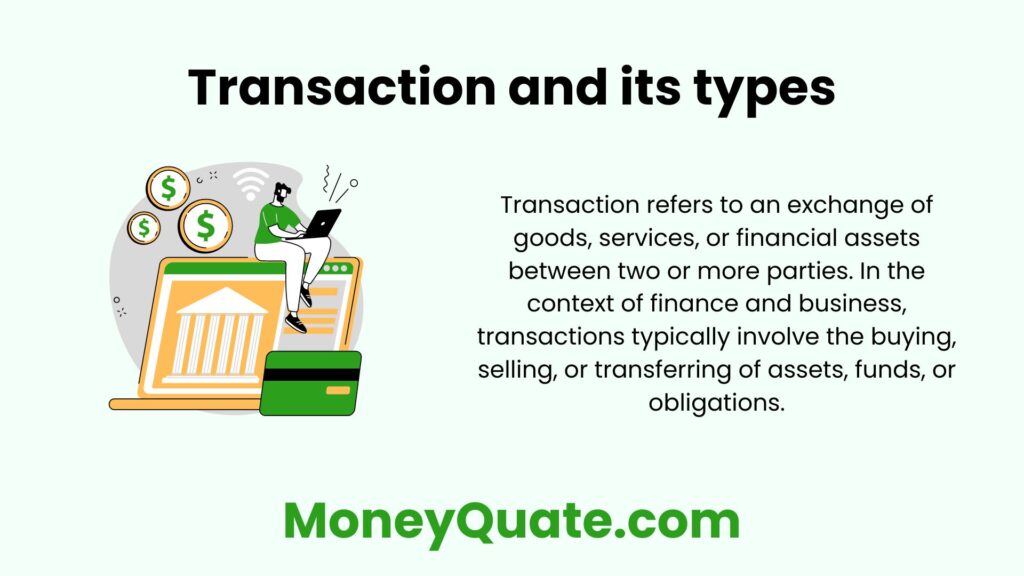A transaction refers to an exchange or interaction between two or more parties that involves the transfer of goods, services, money, or rights.
It can occur in various contexts, including business, finance, economics, and everyday life. Here’s a detailed explanation:

Contents
Meaning of a Transaction
A transaction is a mutual agreement or activity where one party gives something of value to another party in exchange for something else of value.
It typically involves a transfer of ownership, rights, or obligations.
Types of Transactions
Business Transactions
Buying, selling, or trading goods and services between companies or individuals.
Financial Transactions
Exchanging money, securities, or other financial instruments.
Real Estate Transactions
Buying, selling, or leasing property or land.
Legal Transactions
Signing contracts, agreements, or legal documents.
Personal Transactions
Exchanging goods, services, or money in personal dealings.
Elements of a Transaction
Parties
The individuals or entities involved in the transaction.
Goods or Services
The items or benefits being exchanged.
Consideration
The value given or received in exchange.
Agreement
Mutual consent or understanding between the parties.
Delivery
Transfer of ownership or possession of goods or services.
Recordkeeping
Documentation or record of the transaction for legal or financial purposes.
Examples of Transactions
- Purchasing groceries from a supermarket.
- Selling shares of stock on the stock market.
- Signing a contract to lease office space.
- Transferring money from one bank account to another.
- Exchanging goods in a barter system.
Importance of Transactions
- Facilitate economic activity and commerce.
- Enable individuals and businesses to obtain what they need or desire.
- Establish legal rights and obligations between parties.
- Generate revenue, profits, and wealth.
- Provide a basis for accounting, financial reporting, and analysis.
Transaction Lifecycle
Initiation
The parties agree to the terms and conditions of the transaction.
Execution
Goods, services, or funds are exchanged as per the agreement.
Confirmation
Parties verify the completion and accuracy of the transaction.
Settlement
Finalization of the transaction, including payment and delivery.
Recordkeeping
Documentation and reporting of the transaction for tracking and analysis.
Conclusion
Transactions are fundamental to the functioning of economies, societies, and businesses, serving as the building blocks of commerce, finance, and relationships.
Understanding the nature, elements, and implications of transactions are essential for effective decision-making, risk management, and legal compliance in various domains.
5 thoughts on “Transaction Fundamentals: Key Concepts of Economic Exchange”